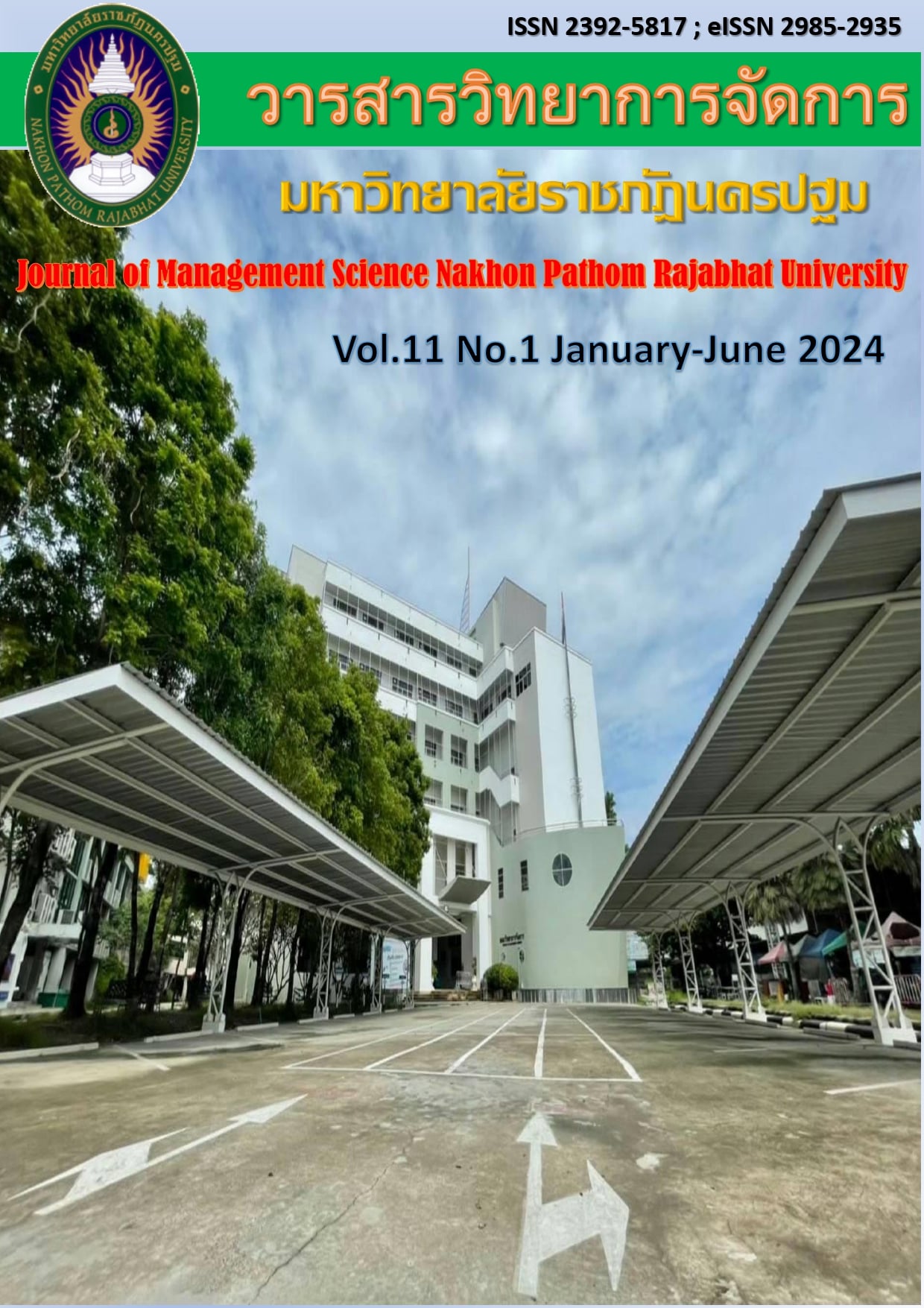Guidelines for Driving the Policy of Smart City Development Mahasarakham Province
Main Article Content
Abstract
The research was qualitative in character. 20 key informants were purposively selected for in-depth interviews; the key in formants comprised four groups of people, namely group 1: five public sector representatives; group 2: five business sector representatives; group 3: five members of the Smart City Development Steering Committee, Mahasarakham Province; group 4: four smart city management experts and one public administration academic. The research procedures consisted of two stages: document study and in-depth interviews. The collected data were analyzed by means of organizing and analyzing the data in line with the objectives of the research.
Research findings: (1) The driving force of the smart city development policy of Mahasarakham Province encompassed six areas: smart environment, smart travel and transportation, smart living style, smart citizens, smart economy, and smart public administration has simultaneous movement in all 6 sides. (2) Concerning the factors conducive to the success of driving the policy of the smart city development, it was found that the driving of the policy used the community as the base of development and used state of the art technology as the quintessence of the development resulting in the alertness of the community members as to the acceptance of new technology. (3) Regarding the problems and obstacles of the driving smart city development policy, it was found that the government must be strongly serious about the development of smart city; the government must provide financial, administrative, and legal support so that the creation of sustainable smart city can become a possibility rendering the improvement of the quality of life of the citizens, (4) With regard to the guidelines for use in driving the smart city development policy of Mahasarakham Province, it was found that Smart City Development Steering Committee, Mahasarakham Province attempts should be made to publicize about the smart city and the benefits to be attained from the smart city development.
Article history: Received 4 March 2024
Revised 3 April 2024
Accepted 5 April 2024
SIMILARITY INDEX = 7.57%
Article Details

This work is licensed under a Creative Commons Attribution-NonCommercial-NoDerivatives 4.0 International License.
The views and opinions of the article appearing in this journal are those of the author. It is not considered a view and responsibility of the editorial staff.
References
ณัฏฐ์ณัชชา ไชยประเสริฐ. (2565). บทบาทท้องถิ่นกับการบริหารจัดการเมืองแบบ Smart City. วารสาร มจร.บาฬีศึกษาพุทธโฆสปริทรรศน์, 8(1), 71-84.
ธนาจุฑา กังสกุลนิติ. (2562). แนวทางการพัฒนาเมืองอัจฉริยะในประเทศไทยในอนาคต. กรุงเทพฯ: สถาบันส่งเสริมการบริหารกิจการบ้านเมืองที่ดี.
พีรดร แก้วลาย. (2564). การพัฒนาบริการสาธารณะเพื่อส่งเสริมเศรษฐกิจท้องถิ่น ด้วยกระบวนการคิดเชิง ออกแบบ. กรุงเทพฯ; สถาบันพระปกเกล้า.
ภาฝัน จิตต์มิตรภาพ ฤๅเดช เกิดวิชัย พรกุล สุขสด และ ดวงกมล จันทรรัตน์มณี . (2565). ปัจจัยขับเคลื่อน ความสำเร็จในการพัฒนาเมืองอัจฉริยะจังหวัดภูเก็ต .วารสารปัญญาภิวัฒน์, 14(1).118-202.
ภาสกร ประถมบุตร. (2563). แนวทางพัฒนาเมืองอัจฉริยะของไทย สู่ความเป็นเมืองน่าอยู่อย่างแท้จริง. [ออนไลน์] ค้นเมื่อ 1 ธันวาคม 2566, จาก: https://www.engineeringtoday. net/พัฒนาเมืองอัจฉริยะ -smart-city/
ศิริวัฒน์ เจนรังสรรค์ และ วิมลสิริ แสงกรด. (2562). การพัฒนาเทศบาลเมืองให้เป็นเมืองอัจฉริยะในพื้นที่
จังหวัด ขอนแก่น. ขอนแก่น : วิทยาลัยการปกครองท้องถิ่น มหาวิทยาลัยขอนแก่น.
สถาบันพระปกเกล้า. (2563). รายงานสถานการณ์การกระจายอำนาจประจำปี พ.ศ. 2562 : บทสำรวจการ พัฒนาเมืองอัจฉริยะขององค์กรปกครองส่วนท้องถิ่น. กรุงเทพฯ : สถาบันพระปกเกล้า.
สำนักงานเมืองอัจฉริยะประเทศไทย (สำนักงานส่งเสริมเศรษฐกิจดิจิทัล). (2564). นิยาม นโยบาย เป้าหมาย. [ออนไลน์] ค้นเมื่อ 1 ธันวาคม 2566, จาก: https://smartcitythailand.or.th/web? definition.
อรทัย ก๊กผล. (2559). Urbanization เมื่อ “เมือง” กลายเป็นโจทย์ของการบริหารจัดการท้องถิ่นสมัยใหม่. กรุงเทพฯ : สถาบันพระปกเกล้า.
Glasmeier, A. & Christopherson, S. (2015). Thinking about Smart Cities. Cambridge Journal of Regions, Economy and Society, 8(1), 3–12.
Meijer, A., & Bolivar, M. P. R. (2016). Governing the smart city: a review of the literature on smart urban governance. International Review of Administrative Sciences, 82(2), 392-408.


